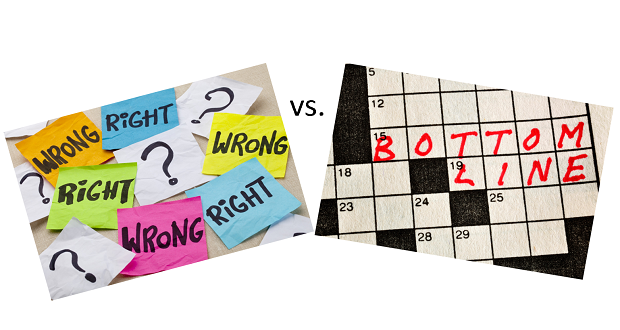
Social media has come a long way from only serving as a means for entertainment. It oftentimes serves as a catalyst for change when it comes to movements like #BlackLivesMatter and #MeToo, and social platforms continue to serve as a valuable outlet for expressing our constitutional right to freedom of speech. This makes social media the ideal place for having conversations… but they are often far from being Bold, Inclusive Conversations®.
Social platforms continue to serve as a valuable outlet for freedom of speech, making it the ideal place for having conversations... but they are often far from being Bold, Inclusive Conversations®. Click To TweetWhile social media has its benefits, it lost me when I accepted the fact that the “social” part of social media has become overwhelmingly toxic. This unfortunate truth applies, in some capacity, to every social platform from Twitter to LinkedIn.
I no longer have the urge to jump into a conversation in the comments because two things are very likely to happen:
- The comment may get a thumbs up or a heart, but no one will attempt to build on the conversation meaningfully.
- Particularly on popular platforms and posts, the comment may get buried among 20 other comments that were sent at the same time.
There are specific experiences that have brought me to the point of giving up on the potential of social media. Allow me to share an example.
On September 22, 2019, a woman reported a rape on Towson University’s Campus (my alma mater) and the story was shared on Instagram. The post caught my attention, and I immediately checked the comments to see if the people involved included anyone I knew. To my surprise and disappointment, I found myself having to scroll through about 30 comments whose only purpose was making fun of the name of the 20-year-old man who was being accused.
After wading through the name jokes, I landed in a section of comments that started offering an actual opinion regarding the disheartening news being shared. Of course, there were comments I did not fully agree with, but there were many that expressed similar ideas to what I was thinking. This is when I debated whether to engage or not, and these things crossed my mind:
Am I able to offer my thoughts on the situation in a different way than those who had similar opinions? Repeating the same point that someone else has already made will result in getting a heart or a like, but again, no progress.
Should I respond to some existing comments, so I can learn more about people’s thought processes? This would require taking the time to look through which comments I should engage with; I also wanted to be mindful of the person behind the comment. I can only get so much context from one conversation, so I would want to look at their profile to learn more about them, like age group, location, and more.
The thought that most kept me from engaging was: will the takeaway from my engagement or comment be meaningful? My answer, after seeing the conversations that were already playing out, was no.
Perhaps I am one of few people who would have this thought process over something as simple as a comment on social media, but I think that is where the problem lies: How much does this inability to offer additional perspective to a post or news update hinder our ability to effectively talk about today’s serious issues?
The number of people getting their news from social media has been increasing; according to a 2018 Pew Research study, 34% of adults prefer to get their news online through websites, apps, or social media. News sharing online represents an opportunity to get your news, and then to discuss it with people all over the world.
So, what if we used more intention when it comes to something as simple as a comment on social media? Here are a few practices I like to engage in on social media:
- Instead of using the automated messages that some platforms offer to congratulate or thank someone, write a personal message, and tie in something that could potentially start a conversation.
- Instead of repeating yourself and replying to many comments, pick a comment or thought that really stands out to you, and invest in one or two meaningful conversations.
- Always double-check a news story before quickly pressing share. Also, actually read through it, instead of sharing based on the title.
- Make time to engage on social media with meaningful intention, rather than trying to do so on the go.
I encourage you to give these a try! Together we can shift the conversations playing out online toward those that foster greater social connection.


















